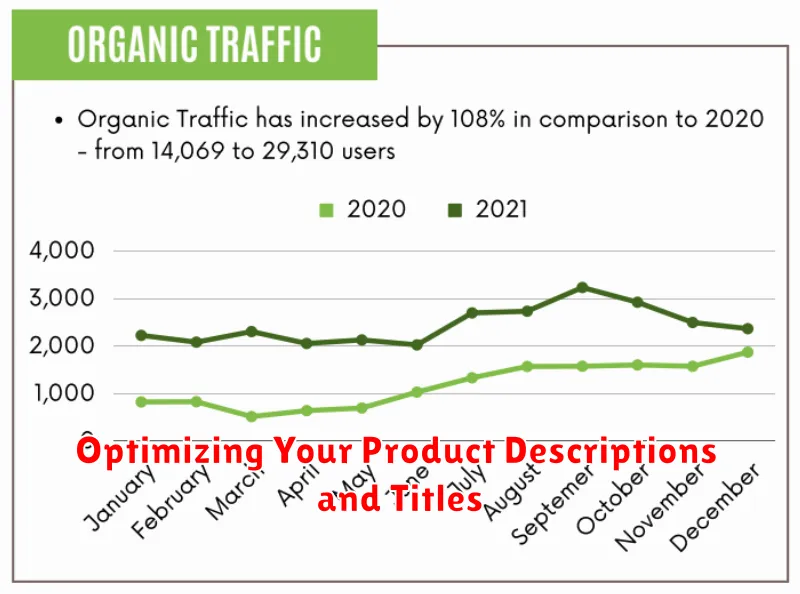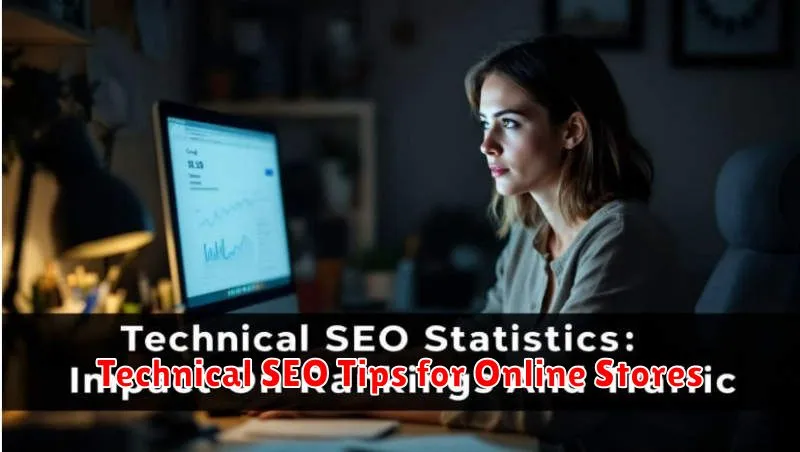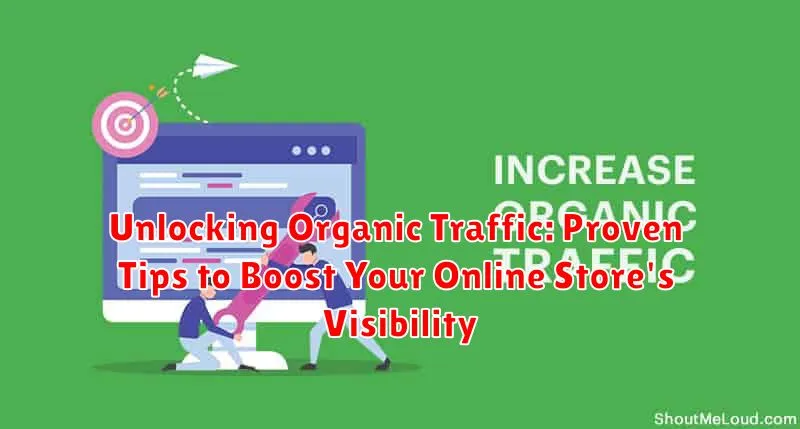In today’s competitive digital landscape, driving organic traffic to your online store is paramount for success. Organic traffic, derived from unpaid search results, represents a highly valuable and sustainable source of potential customers. This article delves into proven strategies to boost your online store’s visibility in search engine results pages (SERPs), ultimately unlocking the power of organic traffic to drive sales and grow your business. By understanding and implementing these tips, you can effectively enhance your online presence and reach a wider audience without relying solely on paid advertising.
From optimizing your website’s on-page SEO and crafting high-quality content marketing strategies to building a strong backlink profile and harnessing the potential of long-tail keywords, we’ll explore the key elements that contribute to higher rankings and increased organic traffic. Learn how to attract more qualified leads, improve your website’s authority, and achieve long-term, sustainable growth by leveraging the power of organic search. Discover actionable insights and practical tips to unlock organic traffic and propel your online store towards greater success.
Understanding the Importance of Organic Traffic
Organic traffic is the lifeblood of any successful online store. It refers to the visitors that land on your website through unpaid search results, as opposed to paid advertising. Cultivating organic traffic is essential for long-term growth and sustainability.
Unlike paid traffic, which stops when your budget runs out, organic traffic provides a consistent stream of potential customers. This consistent visibility translates into a higher chance of conversions and brand loyalty.
Organic search results are often seen as more trustworthy by consumers. When your store ranks high in organic search, it builds credibility and positions you as an authority in your niche. This increased trust can significantly influence purchase decisions.
Finally, organic traffic is cost-effective. While optimizing your site for search engines requires an investment of time and effort, it ultimately delivers a much higher return on investment (ROI) than paid advertising, especially in the long run.
Keyword Research and Optimization for E-Commerce
Keyword research forms the foundation of successful e-commerce SEO. Understanding what terms your potential customers use to search for products like yours is crucial.
Start by brainstorming relevant keywords. Consider variations in terminology, including synonyms and long-tail keywords (longer, more specific phrases). Utilize keyword research tools to identify search volume, competition, and related keywords.
Once you’ve identified your target keywords, strategically incorporate them into your online store’s content. Focus on product titles, descriptions, meta descriptions, and image alt text.
Avoid keyword stuffing, which is the overuse of keywords. Search engines penalize this practice. Instead, aim for a natural integration of keywords within your content, prioritizing readability and user experience.
Regularly track your keyword rankings and refine your strategy based on performance data. The e-commerce landscape is constantly evolving, so staying adaptable with your keyword optimization is key.
Optimizing Your Product Descriptions and Titles

Product descriptions and titles are crucial for attracting organic traffic. Search engines rely on these elements to understand what you’re selling and match it with relevant user searches.
When crafting product titles, be concise and descriptive. Include essential keywords that accurately reflect the product. Avoid keyword stuffing, which can harm your ranking.
Product descriptions provide an opportunity to elaborate on the features and benefits. Focus on writing compelling copy that resonates with your target audience and highlights what makes your product unique.
Consider incorporating the following:
- Keywords: Naturally weave relevant keywords throughout your descriptions.
- Benefits: Explain how the product solves a customer’s problem or improves their life.
- Features: Detail the specific characteristics and attributes of the product.
- Call to action: Encourage customers to make a purchase.
By optimizing your product descriptions and titles, you can improve your search engine rankings and attract more organic traffic to your online store.
Building High-Quality Backlinks to Your Store
Backlinks remain a critical factor in search engine optimization (SEO). High-quality backlinks from reputable websites signal to search engines that your store is a trustworthy and valuable resource. This, in turn, can significantly boost your organic search rankings.
Focus on earning backlinks from authoritative sources within your industry. Guest blogging on relevant platforms, participating in industry forums, and reaching out to influencers are effective strategies. Building relationships with other businesses can also lead to mutually beneficial link exchange opportunities.
Prioritize quality over quantity. A handful of backlinks from highly respected websites holds more weight than numerous links from low-quality or spammy sources. Ensure your link-building efforts align with Google’s best practices to avoid penalties.
Monitor your backlink profile regularly using tools like Google Search Console to identify and address any potentially harmful links.
Content Marketing Strategies for E-Commerce
Content marketing plays a crucial role in attracting organic traffic to your online store. By creating valuable and engaging content, you can establish your brand as an authority in your niche and drive targeted traffic to your product pages.
Blog posts are a cornerstone of e-commerce content marketing. Focus on topics related to your products, addressing customer questions, offering helpful advice, and highlighting the benefits of your offerings.
Creating informative buying guides is another effective strategy. Help customers navigate the purchasing process by providing detailed explanations, comparisons, and recommendations related to your product categories.
Utilizing video content can significantly enhance engagement. Product demonstrations, tutorials, and behind-the-scenes glimpses into your brand can captivate your audience and foster a stronger connection.
Infographics are a visually appealing way to present complex information concisely. Create infographics showcasing product features, usage statistics, or industry trends relevant to your target market.
Leveraging Social Media for Organic Traffic Growth
Social media platforms offer a powerful avenue for driving organic traffic to your online store. By strategically engaging with your target audience, you can build brand awareness and attract potential customers.
Consistent posting is key. Share engaging content relevant to your products or industry. This could include behind-the-scenes glimpses of your business, customer testimonials, or valuable tips related to your niche.
Run contests and giveaways to generate excitement and expand your reach. Encourage sharing and engagement by asking users to tag friends or leave comments.
Utilize relevant hashtags to increase the visibility of your posts. Research popular and niche-specific hashtags to reach a wider audience interested in your offerings.
Engage with your followers. Respond to comments and messages promptly. Building a strong community fosters loyalty and encourages word-of-mouth marketing, which can significantly impact organic traffic growth.
Technical SEO Tips for Online Stores

Technical SEO is the foundation of a successful online store. It ensures search engines can easily crawl and index your website, directly impacting your organic visibility. Site speed is crucial. A slow-loading website can deter customers and negatively impact search rankings. Optimize images, leverage browser caching, and minimize HTTP requests to improve loading times.
A well-structured sitemap is essential for guiding search engines through your product pages and categories. Ensure your sitemap is up-to-date and submitted to Google Search Console. Mobile-friendliness is no longer optional. With a majority of online shopping done on mobile devices, a responsive design is a must-have for organic success. Test your website across various devices to ensure seamless navigation and functionality.
Finally, use HTTPS. Secure your website with an SSL certificate. This not only builds trust with customers but is also a ranking factor. Implementing these technical SEO strategies will significantly improve your online store’s discoverability and contribute to increased organic traffic.
Measuring and Analyzing Your Organic Traffic Performance
Measuring and analyzing your organic traffic performance is crucial for understanding the effectiveness of your SEO strategies. Google Analytics is an invaluable tool for this purpose. It provides comprehensive data on various metrics that offer insights into your website’s performance.
Key metrics to track include organic traffic volume, bounce rate, time on site, and conversion rate. By monitoring these metrics, you can identify areas for improvement and optimize your website for better performance.
Regularly analyzing your organic traffic data allows you to understand which keywords are driving traffic, which pages are performing well, and how users are interacting with your website. This information is essential for making informed decisions about your SEO strategy and maximizing your organic reach.
Analyzing traffic sources can pinpoint which search engines are sending you the most visitors. Furthermore, tracking your keyword rankings helps you understand your website’s visibility for relevant search terms. Use this data to adjust your content strategy and target high-value keywords to attract more qualified organic traffic.

